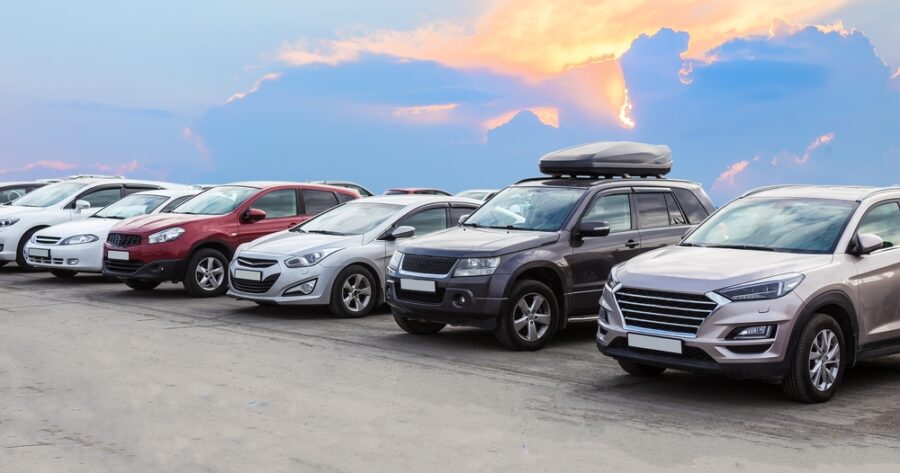Selecting the right class of vehicle can make all the difference in your driving experience, budget, and overall satisfaction. With so many options available, from compact cars to full-size SUVs, understanding what suits your lifestyle and needs is crucial. Choosing wisely can enhance your comfort, ensure you get the most value for your money, and provide the features and capabilities you truly need. Evaluating factors such as space, fuel efficiency, and functionality can help you make an informed decision that aligns with your personal and practical requirements.
Evaluate Your Needs and Lifestyle
The first step in determining which class of vehicle you need is to assess your daily activities and lifestyle.
- Commuting: If your primary use for a vehicle is commuting to work or school, a fuel-efficient compact car or sedan is an ideal choice. These vehicles are economical and easy to maneuver in traffic.
- Family Needs: For larger families, a minivan or mid-to-full-size SUV provides the necessary space and seating. Look for models with safety features, ample cargo space, and flexible seating arrangements.
- Outdoor Adventures: If you frequently go on road trips, camping, or need a vehicle that can handle rough terrain, an SUV with four-wheel drive or an off-road-capable truck might be the best option.
- City Living: For those living in urban areas with tight parking spaces and heavy traffic, a subcompact or compact car can make navigating the city much easier.
- Towing and Hauling: If you need a vehicle to tow a boat, trailer, or carry heavy loads, a pickup truck or full-size SUV with a powerful engine and high towing capacity is essential.
Consider Your Budget
Budget plays a significant role in determining which class of vehicle you can afford. Think beyond the initial purchase price and factor in other costs such as insurance, fuel, and maintenance.
- Initial Cost: Compact cars and sedans are typically more affordable than larger vehicles like SUVs and trucks. Luxury vehicles come at a premium, offering high-end features that may not be essential for everyone.
- Fuel Efficiency: Smaller cars and hybrid vehicles often offer better fuel efficiency, which can save you money over time. Larger SUVs and trucks tend to consume more fuel, so be prepared for higher gas expenses.
- Insurance Costs: Vehicle size and type can influence insurance rates. Sports cars, luxury vehicles, and trucks often have higher premiums than compact or midsize cars.
- Maintenance and Repairs: Consider the average cost of maintaining the class of vehicle you choose. Some luxury vehicles may have higher repair costs, while common sedans and compact cars often have more affordable maintenance.
Safety Features and Ratings
Safety is a top priority for most car buyers, especially families. When evaluating different classes of vehicles, take a close look at safety features and crash test ratings.
- Standard Safety Features: Ensure the vehicle has essential safety components such as airbags, anti-lock braking systems (ABS), and electronic stability control.
- Advanced Safety Technology: Features like adaptive cruise control, blind-spot monitoring, lane departure warning, and automatic emergency braking can provide an extra layer of safety.
- Crash Test Ratings: Check ratings from reputable sources like the National Highway Traffic Safety Administration (NHTSA) or the Insurance Institute for Highway Safety (IIHS).
Evaluate Space and Comfort
Space and comfort are essential for long drives or when carrying passengers.
- Passenger Space: If you often drive with family or friends, a midsize sedan, SUV, or minivan will offer more legroom and headroom than a compact car.
- Cargo Space: Consider how much storage space you need for groceries, sports equipment, luggage, or other items. SUVs, crossovers, and minivans typically provide more cargo space than sedans.
- Interior Comfort: Features such as adjustable seats, climate control, and premium materials can make your driving experience more enjoyable. Test drive different vehicles to determine which class provides the level of comfort you need.
Assess Your Driving Preferences
Your personal driving style can influence which vehicle class is best for you.
- Performance: If you enjoy a more spirited driving experience, you might prefer a sports car or a performance-oriented sedan. These vehicles often offer more powerful engines and responsive handling.
- Ease of Driving: For those who prioritize ease of driving, smaller cars or crossovers with good visibility and simple controls can be a better fit.
- Off-Road Capability: If you plan to drive off the beaten path, look for a vehicle with four-wheel drive or all-wheel drive and features like higher ground clearance.
Find the Right Vehicle for You
Choosing the right class of vehicle involves careful consideration of your lifestyle, budget, and driving preferences. By evaluating your needs and understanding what different classes offer, you can select a vehicle that meets your daily demands and enhances your driving experience. Take the time to test drive multiple vehicles, research their features, and consider future needs to make an informed decision.
